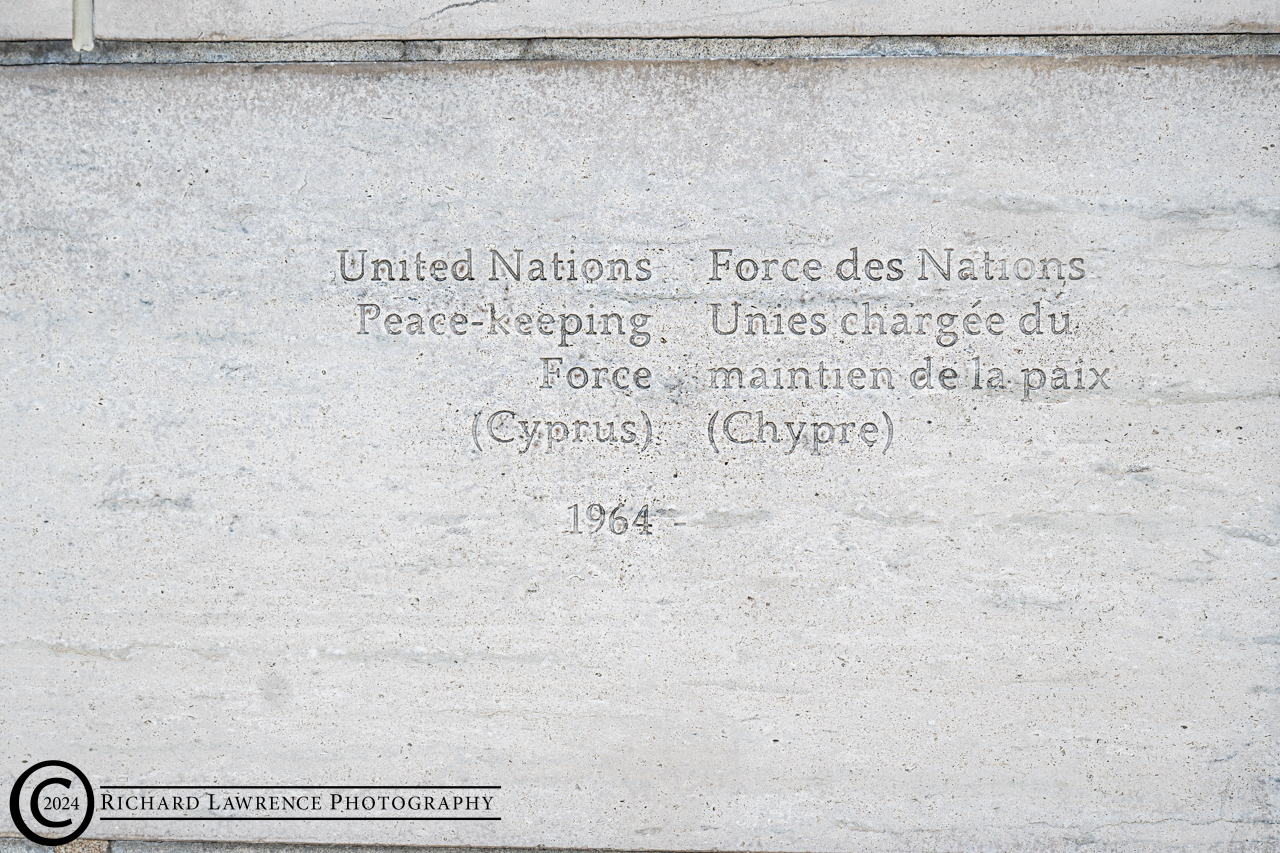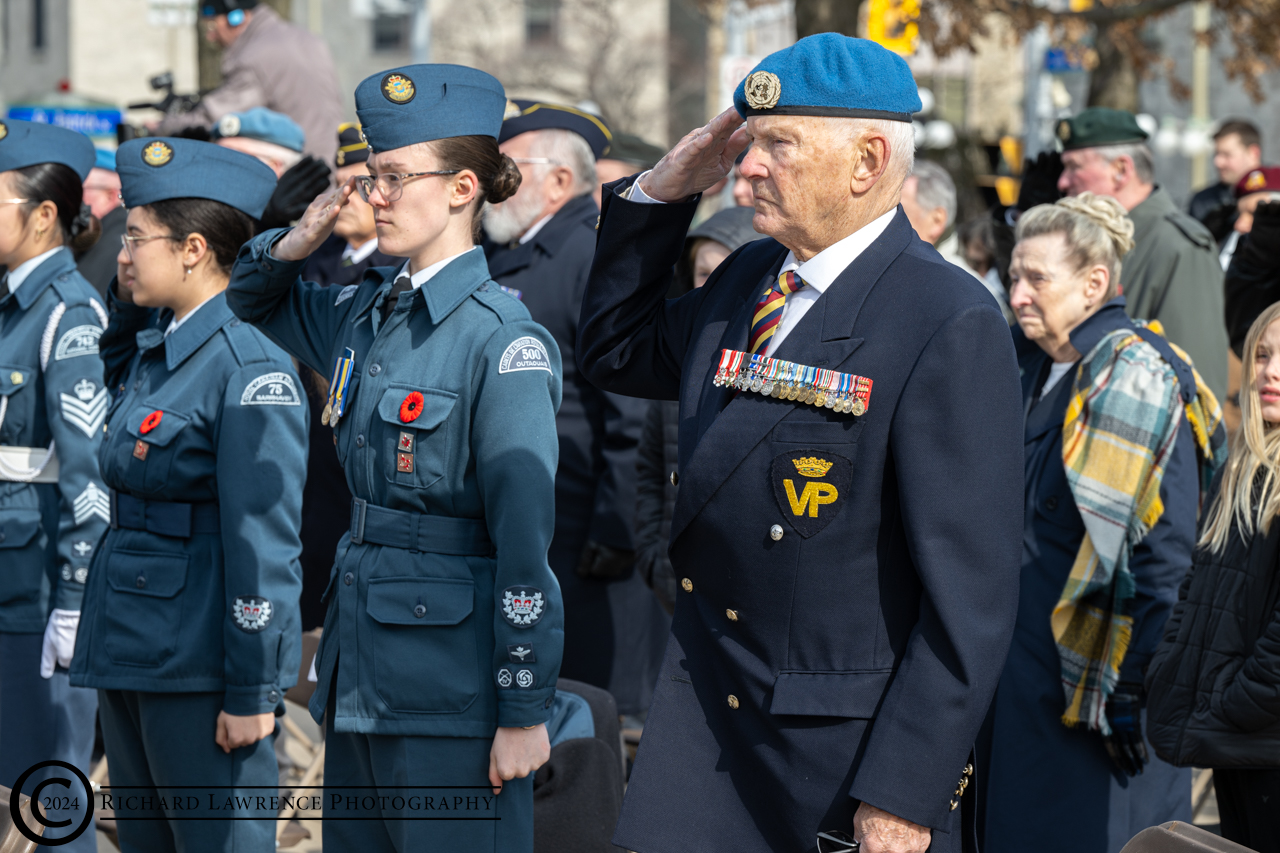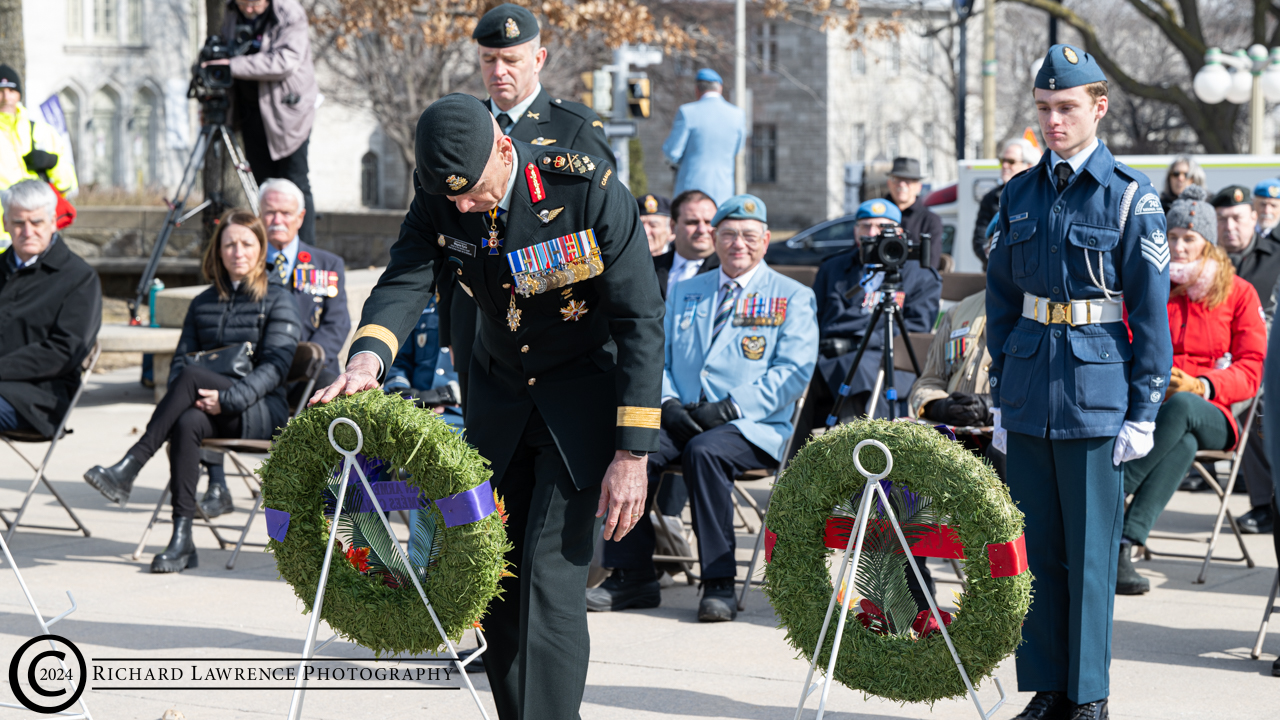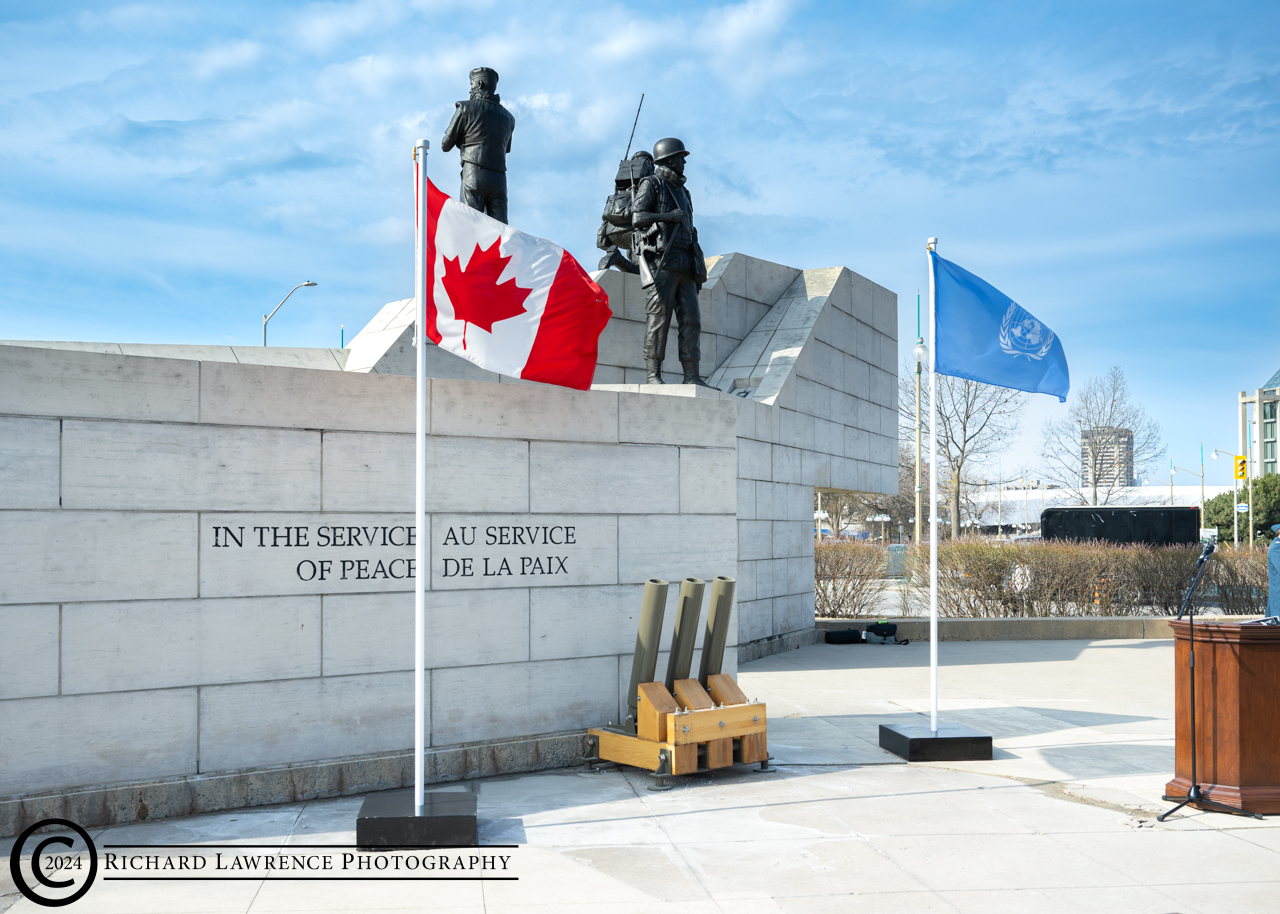To see all the pictures from today’s ceremony, CLICK HERE:
Sixty years ago today (13 March, 2024) the longest standing commitment of United Nations Peacekeeping started for Canada on the Mediterranean island of Cyprus (operation known as UNFICYP). The day before, Prime Minister Lester Pearson committed Canada as one of four contributing nations to help keep the peace between the warring Greeks Cypriot majority and Turkish Cypriot minority on the island. Canadian peacekeepers were the first to arrive and remained in strength until 1993 with more than 33,000 Canadians serving in Cyprus over the years and 28 killed during their service.
For the next 10 years, the situation remained fragile in Cyprus and UNFICYP could not prevent small groups from carrying out a guerilla war of hit-and-run skirmishes and attacks. Then, on 15 July 1974, Greek officers serving in the Cypriot National Guard, who still supported unification with Greece, staged a coup d’état to force the union. Turkey quickly responded, and on 20 July some 40,000 Turkish soldiers launched an invasion of the northern part of Cyprus to ensure unification did not take place leaving U.N. Peacekeepers caught in the middle.
Turkish forces pressed southward to expand their territory and Canadian peacekeepers evacuated civilians caught in the war zone and placed strategic locations, such as the Nicosia International Airport and the Ledra Palace Hotel, under U.N. control to prevent the Turks from occupying them. The Canadian contingent at the time consisted of 450 soldiers of 1 Commando from the recently formed Canadian Airborne Regiment (CAR). This resulted in Operation Snowgoose where Canada sent the rest of the Airborne Regiment along with heavier weapons and vehicles (M113s, Lynxs, mortars, etc.) into the battle zone.
By the time peace was restored in mid-August, Turkey controlled the northern third of Cyprus, some 3,367 square kilometres. Two Airborne Regiment soldiers, Troopers Gilbert Perron and Jean-Claude Berger, had been killed by rifle fire and more than 30 wounded. Canadian gallantry during the invasion resulted in the award of two Stars of Courage and six Medals of Bravery, as well as five appointments to the Order of Military Merit.
On 23 July 1974 some of our troops came under fire. Several soldiers were hit, including Captain Normand Blaquière. Private Michel Plouffe rushed to give the injured officer first aid but was wounded in the face. Despite being hit, he continued to tend to Blaquière amid the machine gun fire. Captain Alain Forand then arranged for covering fire and crawled forward over exposed ground to help the wounded men. He single-handedly dragged Blaquière to safety and then directed the rescue of Plouffe by Corporal Roland Whelan, Private Joseph Belley and Private Joseph Pelletier. Plouffe and Forand were awarded the Star of Courage for their remarkable actions. Belley, Pelletier and Whelan earned the Medal of Bravery. [plagiarized from the Veterans’ Affairs Canada website].
From 1964 to 1993 every Regular Force infantry battalion in the CAF had rotated through Cyprus at least once. After 1993, Canadian participation in Cyprus waned and now has a single officer to support the operations staff at UNFICYP headquarters in Nicosia, rotating yearly.
The ceremony today served as a remembrance of all who served and those who died. Held at The Reconciliation Monument in Ottawa, it was attended by only a few with some United Nations veterans in attendance but some other notables such as MGen (ret’d) Lewis Mackenzie (served in Cyprus 1965, 1971, 1978) and MGen (ret’d) Clive Milner who served in Cyprus 1988 to 1992 as Commander of UN Peace-keeping Force in Cyprus.
Wreaths were laid by the CDS Gen. Wayne Eyre (for CAF), Dawolu Saul – DG Communications – Veterans’ Affairs Canada, and MGen (ret’d) Clive Milner for veterans of Cyprus. After a prayer by Capt. John Funelas, the ceremony was complete and the parade dismissed.




